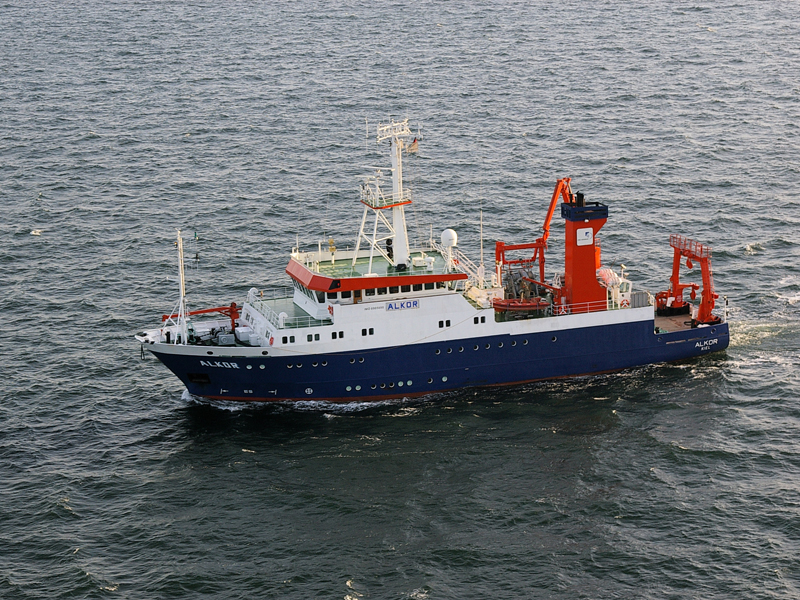ALKOR AL573
- Area:
- Baltic Sea
- Time:
-
14.05.2022 - 30.05.2022
- Institution:
- GEOMAR
- Chief scientist:
- Thorsten B.H. Reusch
The Baltic Sea is a coastal area strongly affected by the combination of global and local anthropogenic pressures including fisheries, eutrophication and deoxygenation. Heavy overfishing for several decades has resulted in a highly truncated size distribution of one of the most important commercial fish stocks, Eastern Baltic cod. Since the 1990s, the mean size at maturity of cod of both sexes has seen a remarkable decrease to only half the original size. One of the central hypothesis addressed by the proposal states that selection imposed by size selective harvesting has strongly contributed to the observed decline in size distribution / size at maturity via “fisheries induced evolution” (FIE). To test this hypothesis, we take advantage of a 35-year long-term data series of the deep basins of the central Baltic Sea, allowing the analysis of Baltic pelagic food webs and (fish) species under changing environmental conditions and human exploitation. This includes the investigation of the spatial distribution and phenology of native zooplankton and prey fish species to include possible alternative hypotheses for the observed trends in cod, for example changes in prey abundance and hence nutritional state, and ocean warming. Our second hypothesis states that non-invasive, optical /acoustical (sonar) technologies are capable to obtain accurate assessments of fish species composition and stock structure. Along with the required calibration of observatory data with net catches, a related, high-risk objective is to obtain first behavioral observations on cod spawning aggregations. The work is embedded into two nationally funded projects, the DFG research training group 2501 “Translational Evolutionary Research" with the project “Fisheries Induced Evolution” and the BMEL funded the UFOtrinet project.



